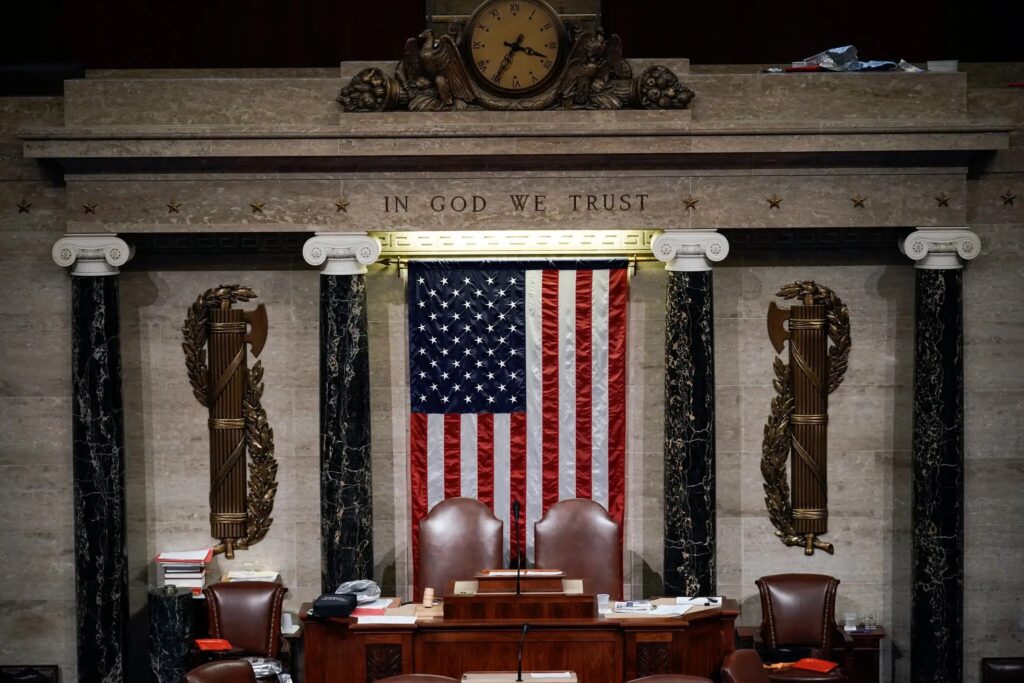
If the fiasco in the House of Representatives during the past two weeks has taught us anything, it is that no one wants to deal with the headache of being Speaker of the House anymore–and for good reason. On Tuesday, Oct. 3, 2023, Representative Kevin McCarthy (R-C.A.) made history by being the first Speaker voted out. After an arduous election cycle back in January, lasting four days and fifteen rounds of voting, leading to an even more problematic nine months of speakership, McCarthy was out in a vote of 216 to 210 due to eight Republican Representatives–the “Gang of Eight” –instigating his vacancy.
McCarthy spelled his own demise right from the beginning. In his drawn-out fight for election, McCarthy made key compromises that placed him in a vulnerable state, particularly the concession that allowed any singular lawmaker to force a snap vote to vacate the Speaker’s position. Being in a weak situation disadvantaged him, but McCarthy’s actions throughout his term cemented his downfall, as he could not pick a side or respect an agreement. When hard times arose, as did the debt-ceiling crisis in June or the government shutdown crisis in September, McCarthy had to do his job and work alongside the Democratic party unwillingly. Despite his ability to work bipartisanly, McCarthy stuck with far-right conservatives and approved a baseless impeachment inquiry into President Biden while sparing no effort to criticize his liberal colleagues. Thus, he alienated the two factions necessary to keep him in power, so when Rep. Matt Gaetz (R-F.L.) called for a motion to vacate, McCarthy was out.
Despite his many shortcomings, the issue in this debacle lies in the ability of eight Representatives, just around four percent of the Republicans in the House, to hold the entire section of government frozen. This is not a unique situation, as a similar instance is occurring with Senator Tommy Tuberville (R-A.L.) single-handedly holding up military promotions since March. This abuse of political power has worsened in recent years due to the increased polarization that has permeated the government. With the rise of MAGA ideology, compromise became taboo, regardless of the consequences.
Unfortunately, we have begun to see these consequences. Less than a week after the Speaker’s ousting, rendering the House ineffective, a war broke out in Israel. Without the ability to execute any action in the House of Representatives, the United States has no power to officially condemn any action or provide any aid, as both need to be passed by Congress. The radicalism that has infiltrated our government has finally revealed its true danger, creating such divides that our leaders chose disarray over compromise.
With an international crisis ongoing, less than 45 days to keep our government from shutting down and a country to run, the House of Representatives seems unlikely to succeed in any of the above. On Oct. 11, 2023, Republicans nominated Rep. Steve Scalise (R-L.A.) to be the next House speaker in a bleak vote of 133 to 99, but the next day dropped out of the race after not securing sufficient support to reach the required 217 votes. Two days later, the GOP nominated Rep. Jim Jordan (R-O.H.), but he also failed to secure enough votes to win the seat. With the front-runner deserting the bid and the GOP left chaotically divided, it is clear that this position is becoming progressively unattractive. The power and prestige of the job is diminishing in the face of the perilous tightrope a Speaker must walk to please everyone. If things remain the same, the Gang of Eight will continue manipulating the government, the Democrats will stay partisan and stand against the Speaker and the United States will lose itself in petty political skirmishes. Instead of presiding over a chamber in the world’s oldest democracy, the Speaker of the House is catering to the whims of whoever will keep them in the seat.
There is no clear path forward. With no representative able to garner enough support to reach 217 votes, the House must turn to more creative solutions. Some representatives have floated the idea of once again nominating McCarthy, who signaled his openness to retaking leadership by introducing a five-point plan to support Israel, perhaps also demonstrating focus on the disregarded commitments the House of Representatives holds. However, if he is nominated, McCarthy must not confine himself to a vulnerable position that leaves him and the rest of the House at the whim of a small faction of lawmakers. Regardless of who is elected, there must be a shift in the mindset of all elected officials that places the good of the institution and the country above partisan divides and petty feuds. If the Speakership is ever to be a desired job, it must once again become a job of integrity, distinction, and capability.



